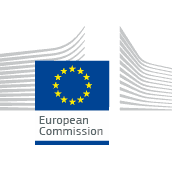
Safety of low enriched fuel for research reactors - securing the supply of medical radioisotopes
Deadline: Nov 8, 2023
CALL EXPIRED
CALL EXPIRED
Waste Management
Industrial Manufacturing
Education and Training
Physics
Research
Artificial Intelligence
Project results are expected to contribute to all of the following expected outcomes:
- Develop competencies and ensure continuity in the EU’s excellence in research reactors while contributing to Europe’s Beating Cancer Plan and implementing the Strategic Agenda for Medical Ionising Radiation Applications (SAMIRA).
- Support the future of European high-performance research reactors (HPRRs) and medium power research reactors (MPRRs) as world-leading neutron sources and reliable production facilities for medical radioisotopes by ensuring knowledge and technologies for an adequate supply of high-assay low-enriched uranium (HALEU) fuel and targets.
- Address the relevant requirements of the Nuclear Safety Directive, Basic Safety Standards Directive and Radioactive Waste Management Directive, and improve the sharing of best practices between the European nuclear industry, research and other relevant organisations (e.g. for metrology), universities, technical support organisations, the European Nuclear Safety Regulators Group and the Western European Nuclear Regulators Association, thereby maintaining the high safety standards for research reactors in the EU.
Europe has a unique portfolio of HPRRs and MPRRs. They are vital to a number of scientific areas, from basic research and materials research, nuclear physics, medical and life sciences to the education and training of highly qualified experts. These are essential for implementing the highest nuclear safety standards in Europe.
These first-class research reactors are mostly used for irradiation testing of existing and future materials. This enables scientific advances crucial to the development of applied technologies, production of homogeneously doped silicon for high-performance semiconductors and production of radioisotopes for industry and nuclear medicine. This enables a stronger European Health Union and a more secure, better-prepared and more resilient EU.
Euratom research will be driven by further development and qualification work by European HPRR and MPRR operators to enable their research reactors to be converted from highly enriched uranium to low-enriched uranium, and/or to ensure the supply of alternative fuels, including reactor-specific prototype demonstrations. Challenges relate among others to innovative manufacturing technologies for nuclear components and metallic nuclear fuel using HALEU, specifically in the domain of monolithic UMo-based fuel production in the EU as the highest density HALEU fuel possible to improve uranium economy in the conversion of current research reactors and the design of future research reactors, without excluding other alloys and metals.
To secure the supply of HALEU, it is necessary to carry out R&D on the metallisation of low-enriched uranium by alternative methods to provide options to potential future EU manufacturers of HALEU. Advanced post-irradiation examinations and thermal conductivity measurements to support the qualification of high-density fuels and reactor‑specific licensing are also necessary.
Action should improve HPRR and MPRR operational safety and serve for state-of-art licensing procedures by developing, verifying and validating advanced modelling and simulation tools in relation to neutronics, thermal hydraulics and the mechanical stability of reactor cores using codes developed in Europe, e.g. SERPENT 2, but also by introducing digital technologies and artificial intelligence to reactor design. As a result, the action should increase regulators’ trust in introducing modern quality assured techniques into the licensing procedures of nuclear facilities and the evaluation of reactor safety margins.
Public link: Only for registered users
 Euratom Research and Training Programme (EURATOM)
Euratom Research and Training Programme (EURATOM)


Please Log In to See This Section